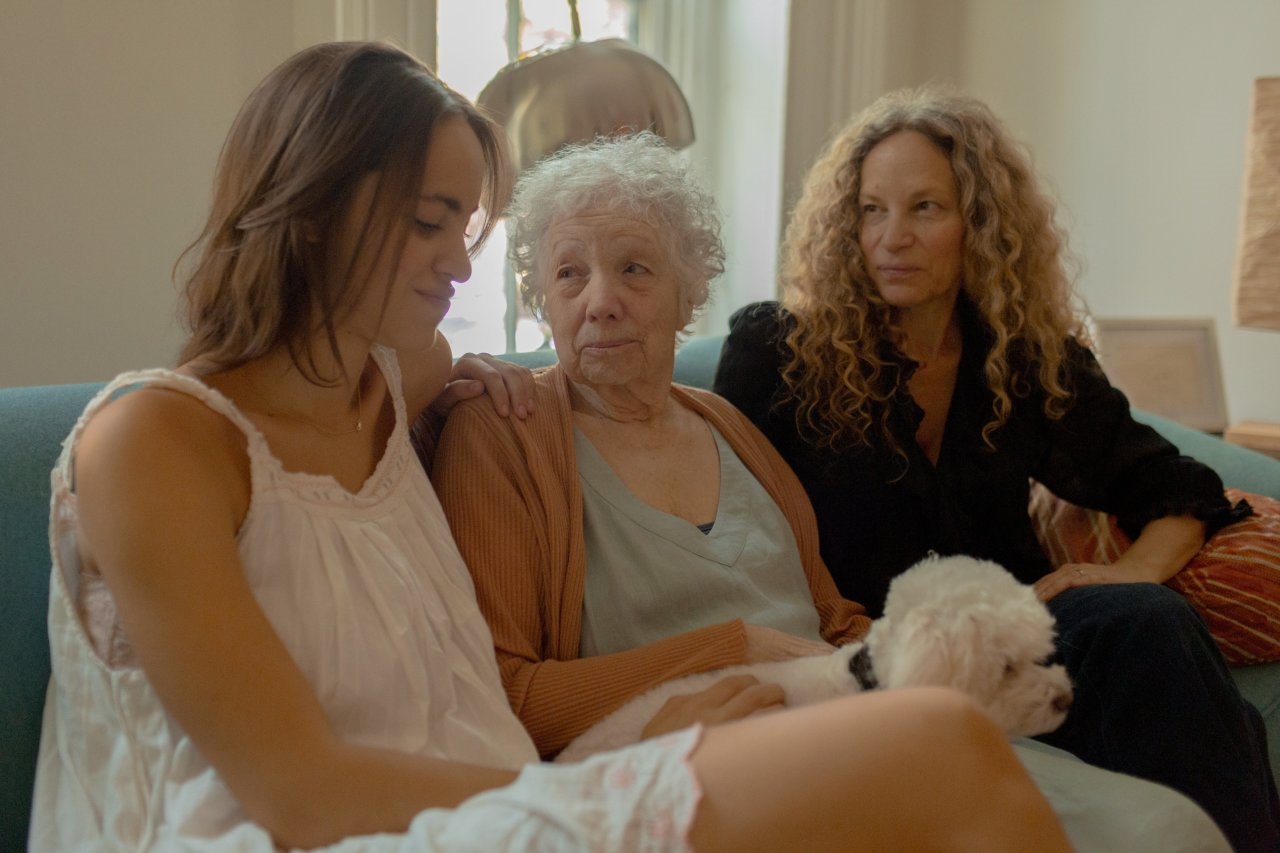Last month, my almost 90-year-old mother moved into my house. She had been living on her own with her dog, Ajax, in the Upper West Side apartment she had shared with my father for three decades. But for various reasons, this arrangement no longer made sense.
For one thing, she walks precariously with a walker. When she is alone for too long she gets into a dreamy state. Sometimes she forgets that she can’t walk without a walker and falls.
This move involves some shrinking of kingdoms for her. She has moved into an objectively less nice apartment. She has given up her doorman, her sweeping city views, her sun-soaked apartment for a garden floor in a house in Brooklyn. She has left behind hundreds of books that I don’t have space for.
On the morning she moved in, she and I were both a bundle of nerves. A few glaring problems seemed insurmountable. Her walker wouldn’t fit through the doorway of the bathroom. The bed was too high for her to safely get on and off by herself. “Oh, I am fine,” she said as she struggled to get onto it. But she wasn’t fine.
I felt a kind of birds-in-my-ribcage panic. Were we making a giant mistake?
In theory I like the idea of a big crazy household, the young and the old jostling together, three-generation family dinners, but would it be OK in practice?
Many of my friends seemed a little shocked that we are doing this. I imagine another culture, in India say or Italy, where generations crowd together into a single household. This seems strange only here where nuclear families are supposed to splinter off and live in isolated bubbles.
My daughter took a video of my mother’s first, slightly terrified ride up the stair lift we installed so she could reach our part of the house. “Hey, girl,” my daughter called out, and my mom beamed at her. For the first time that day, I thought maybe this will work.
While we were making the decision, my mother often said, “I don’t want to be a burden.” But when I was two I was not thinking, “I don’t want to be a burden.” There are stages of life when you need help from your family, and this is one of those stages.
When my first husband left and I was moving with my three-year-old to this house, my mother trekked on the subway to spend hours helping me pack and combat the existential dread. The words “burden” or “imposition” are not capacious enough to contain all the good or bad parts of this situation. There is a kind of grace in it that is too delicate for words.
My husband carefully hung her art, which my father had lovingly collected, much of it angels and ships and Venice palazzos in heavy mahogany and gold frames meant for grander spaces. But somehow it works. Her new space has a little of the feel of her old space. A wooden duck. A silver samovar from her mother. My father’s 19th-century leather Trollope collection. A mahogany table made from a ship’s door.
In the mornings, I come down and lay out her clothes. If I am honest with myself, there is something alarming about parenting your parent. On some deep and irrational level it feels like the world has turned upside down. There is a wrongness to it that is hard to shake, even when I consciously appreciate its naturalness. Some part of me is thinking, “Why isn’t she taking care of me?”
When my daughter sees me carrying clean towels downstairs, she jokes, “I live to serve the noble house of Black.” This is a quote from Kreacher, the house elf in “Harry Potter,” who is basically a slave to the family he serves. Now I think to myself sometimes, I live to serve the noble house of Black.
Another challenge, of course, is that parents can annoy you in a way that other people can’t. That mildly critical comment has a knife’s edge that other people’s mildly critical comments don’t. The ancient history is present and alive no matter what. When my mother asks how my writing is going, the writing she always thinks I should be devoting more time to, the writing I am not doing because I’ve been arranging her apartment, I can’t help but simmer, even though I know this is totally unfair.
But as the days go by, we are developing routines. In the morning, I bring in her newspaper from the stoop, pour her cereal, put out her pills, feed Ajax. While I am working upstairs, I picture her cozy on her white couch next to the garden, drinking her iced latte and poring over the print paper, her dog curled up next to her. She has been absorbed into the rhythms of the house.
My husband brings her fresh watermelon juice he has made on his way to use the elliptical machine. My son talks to her about a paper he wrote on photographers during the McCarthy era. She somehow manages to sleep through a party my daughter throws on the floor above her.
We are all busy, though, and running around. Sometimes I still worry she is alone too much. She used to meet her friends for lunches, dinners, book clubs, museums, parties, but many of these friends have died or don’t go out much anymore.
A line of Gabriel Garcia Marquez floats into my head: “The secret of a good old age is simply an honorable pact with solitude.”
In the evenings, my mom shoots up the stair lift for dinner and keeps me company while I am cooking. We talk about the Japanese novel from the 1930s that she has been reading all day.
A feeling of well-being comes to me in unexpected moments. There is a kind of peace in seeing her drink a glass of wine on my deck, among my tangly flowerpots.
